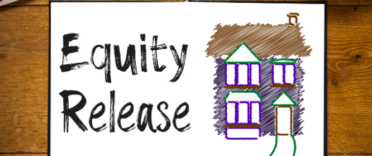
What is negative equity?
Negative equity is when the amount of money that you have borrowed to buy a property exceeds the property value. House prices fluctuate from time to time and if they fall, the value of your home could reduce below the amount that you owe to your mortgage lender causing you to fall into negative equity. Negative equity is more likely to occur if the difference between the cost of your property and the mortgage amount you borrowed was small at the outset, e.g. you have a high loan-to-value.
To learn more about what causes negative equity, how to avoid getting into negative equity and what to do if you are in negative equity, read our article, 'What is negative equity?'.
Can I remortgage if I am in negative equity?
It is possible but can be difficult as your lender is unlikely to offer you a mortgage deal based on a loan-to-value that exceeds 100% unless its lending criteria allow this. Despite this, mortgage lenders are just as aware as homeowners that house prices can fluctuate and if you plan to stay in your property, your lender may take the view that your home will increase in value over time while you reduce the amount of money that you owe on your mortgage which could rectify the negative equity that exists now.
Once your current mortgage deal expires, the interest rate charged on your mortgage will normally revert to your lender’s Standard Variable Rate (SVR). The SVR is usually higher than fixed deal interest rates which means that your mortgage payment is likely to increase and may fluctuate as the SVR is not a fixed rate. In some cases, you may be able to remortgage using a negative equity mortgage, we describe how these work later in this article.
Before changing the rate of interest that you pay you will be notified by your lender so that you know exactly how much your mortgage payment will be. If you feel the new mortgage payment will be unaffordable, you should contact your lender as soon as possible to discuss this. First-time buyers remortgaging for the first time after buying their property can often be at a higher risk of negative equity. In this instance, it is useful to speak with a mortgage broker*.
Can you sell a house in negative equity?
Yes, it is possible as long as your lender agrees to let you take the residual debt with you once the mortgage has been repaid from the sale of your home. If you have sufficient funds, you can repay the residual debt or your lender may agree on a repayment plan whereby you repay the remaining balance over an agreed period of time. You may choose to rent while you repay the amount that you owe and in some cases, you may be able to arrange a new mortgage if the lender believes you meet its affordability criteria. However, this option is usually not the preferred option if you are in negative equity unless you have exhausted all other options and cannot afford your mortgage repayments.
Arranging an additional payment plan to repay the shortfall in your mortgage is likely to affect your credit score and this can affect your ability to get credit or arrange a mortgage in the future.
Selling a house that is in negative equity can be difficult so it is helpful to discuss your options with a specialist mortgage broker*. Mortgage brokers have in-depth knowledge about different types of mortgages and how to qualify for these - the best mortgage brokers are independent and search the whole of the mortgage market on your behalf.
What is a negative equity mortgage and can I get one?
A negative equity mortgage is where the lender accepts that the LTV ratio on your home is in excess of 100% and still provides you with a mortgage deal. Negative equity mortgages are few and far between so it is rare that such a solution is available to you. Historically, lenders have offered mortgages based on LTVs of 100% and over and it is possible that market shifts could prompt lenders to do this again in the future. It is worthwhile speaking to a specialist mortgage broker* who will discuss your specific circumstances with you to suggest the best solution.
If you manage to secure a negative equity mortgage, it is important to check whether your mortgage contract is subject to:
- Early repayment charges
- Mortgage arrangement fees
- A relatively high-interest rate
Summary
If you find yourself in negative equity where your property price has dropped to below your mortgage balance, you may not have to do anything at all - often, house prices will rise again when the property market recovers and solve this problem before it affects you. However, if the timing of a drop in house prices coincides with the end of your mortgage deal or plans to move house, it can limit your options to remortgage or sell your home.
The best thing to do is to speak with your mortgage broker to discuss your options as these will differ depending on what you wish to achieve and the extent of the gap between your property value and the mortgage balance. If you do not have a mortgage broker, you can source a local mortgage broker using VouchedFor*, a service that vets financial professionals in your area. Alternatively, we have vetted the services provided by the online mortgage broker, Habito* - the mortgage brokers at Habito are knowledgeable and with access to over 90 lenders, they are well-placed to find mortgage solutions.
If a link has an * beside it this means that it is an affiliated link. If you go via the link, Money to the Masses may receive a small fee which helps keep Money to the Masses free to use. The following link can be used if you do not wish to help Money to the Masses or take advantage of any exclusive offers - Habito, Vouchedfor





